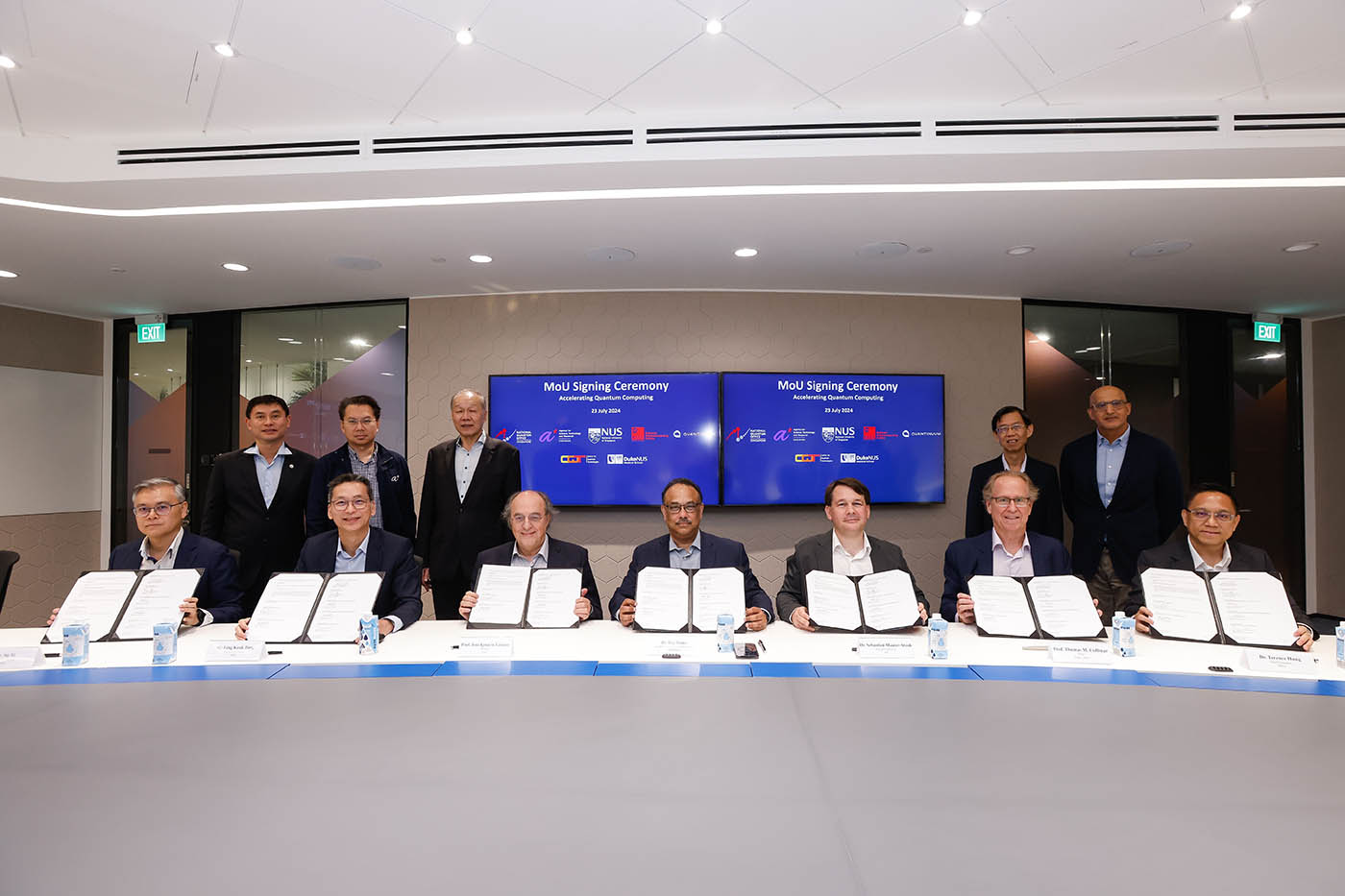Singapore research organisations and Quantinuum have signed a Memorandum of Understanding (MoU) enabling access to Quantinuum’s advanced quantum computer, and to explore and collaborate on quantum computing use cases, focusing on computational biology. The organisations will also collaborate in hybrid computing and talent development.
Singapore has a strong background in computational biology and the collection of quality health datasets. Through this MoU, scientists from A*STAR’s Bioinformatics Institute, the Centre for Quantum Technologies at the National University of Singapore and Duke-NUS Medical School’s Centre for Computational Biology will be able to leverage Quantinuum’s H-Series and Helios quantum computers to enhance capabilities in modelling complex biological systems, advancing drug discovery and personalised medicine.
Quantinuum offers an integrated, end-to-end quantum computing platform based on trapped-ion technology. As part of the announcement, the company also said it plans to establish a dedicated R&D presence in Singapore, where researchers could better exchange knowledge and expertise for further developments in quantum applications and algorithms.
The MoU is guided by Singapore’s National Quantum Strategy, which aims to strengthen Singapore’s position as a leading hub in the development and deployment of quantum technologies.
Reactions from Directors of NQCH member centres:
“I am excited to start this new collaboration between our scientific experts in Singapore and the multinational company Quantinuum. We bring know-how in quantum algorithms and computational biology to work with the Quantinuum team, which is building some of the highest performing quantum computers available in the world today,” – José Ignacio Latorre, Director, Centre for Quantum Technologies and Professor, National University of Singapore
“A*STAR’s IHPC has been harnessing central processing units (CPUs) and graphics processing units (GPUs) to accelerate complex computations and optimise data-intensive tasks. With advancements in quantum computing technology, we are now integrating quantum processing unit (QPU) elements to push computational boundaries and drive innovation across various fields. Our partnership with Quantinuum is a step forward in improving applications such as drug discovery, potentially accelerating the development of new and effective drugs to improve healthcare outcomes and lower research costs” – Dr Su Yi, Executive Director, A*STAR’s Institute of High Performance Computing
“The past year has seen a worldwide trend of accelerated efforts to integrate and co-locate supercomputers and quantum computers, which reflects the strong symbiotic relationship between classical and quantum systems. Singapore’s tie-up with Quantinuum will be a significant step in helping NSCC learn, plan and develop our future hybrid computing infrastructure to serve the needs of our research community,” – Terence Hung, Chief Executive, National Supercomputing Centre Singapore.
Image: [From left to right, seated] The MoU signing was represented by Dr Su Yi, Executive Director, A*STAR’s Institute of High Performance Computing; Mr Ling Keok Tong, Executive Director, National Quantum Office; Prof José Ignacio Latorre, Director, Centre for Quantum Technologies; Dr Raj Hazra, President & CEO, Quantinuum, Dr Sebastian Maurer-Stroh, Executive Director, A*STAR’s Bioinformatics Institute; Prof Thomas M. Coffman, Dean, Duke-NUS Medical School; Dr Terence Hung, Chief Executive, National Supercomputing Centre Singapore.




